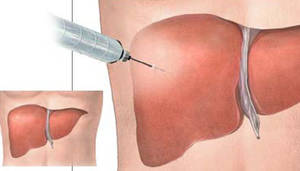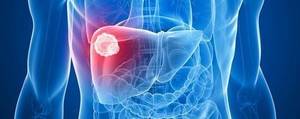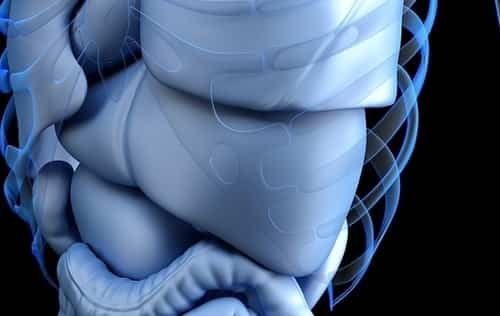The liver is a powerhouse organ responsible for detoxification, metabolism, and digestion. However, many people don’t realize they have liver problems until symptoms become severe. So, how can you tell if your liver is bad?
Leading Causes of Liver Failure
| Cause | Percentage (%) |
|---|---|
| Hepatitis B & C | 40% |
| Alcoholic Liver Disease | 30% |
| Non-Alcoholic Fatty Liver Disease (NAFLD) | 15% |
| Drug-Induced Liver Injury (Acetaminophen Overdose, Medications, Toxins) | 10% |
| Genetic & Autoimmune Disorders | 5% |
This chart illustrates the leading causes of liver failure, highlighting the major contributing factors such as Hepatitis B & C and Alcoholic Liver Disease. Preventative measures, early diagnosis, and lifestyle changes can help
Common Symptoms of Liver Damage
Liver disease can be silent in its early stages, but here are some key symptoms to watch for:
Fatigue and Weakness
- This is one of the earliest and most common signs of liver dysfunction.
- The liver is essential for energy production, and when it’s damaged, the body feels sluggish.
- Accompanying symptoms: Lack of motivation, brain fog, and general malaise.
- When to worry: If fatigue persists for weeks despite adequate rest and proper nutrition.
Jaundice (Yellowing of Skin and Eyes)
- Caused by excessive bilirubin, a yellow pigment that builds up when the liver fails to process it properly.
- Accompanying symptoms: Dark urine, pale stools, and itchy skin.
- When to worry: If yellowing spreads rapidly, indicating acute liver failure.
Abdominal Pain and Swelling
- Pain is typically felt in the upper right side of the abdomen.
- Swelling occurs due to fluid buildup (ascites) in advanced liver disease.
- Accompanying symptoms: Nausea, bloating, and loss of appetite.
- When to worry: If the pain is persistent or worsens over time.
Dark Urine and Pale Stool
- Dark urine is a sign of excess bilirubin, while pale stools indicate a lack of bile production.
- Accompanying symptoms: Jaundice, fatigue, and itchy skin.
- When to worry: If urine remains dark for days despite good hydration.
Unexplained Weight Loss
- The liver helps regulate metabolism, and its dysfunction can lead to muscle wasting and loss of appetite.
- Accompanying symptoms: Weakness, nausea, and changes in bowel movements.
- When to worry: If weight loss exceeds 10% of body weight in a short period.
Nausea and Vomiting
- A malfunctioning liver struggles to clear toxins, leading to digestive distress.
- Accompanying symptoms: Loss of appetite, bloating, and stomach pain.
- When to worry: If nausea is persistent and unexplained by diet or infection.
Itchy Skin
- Caused by bile salts accumulating under the skin due to liver dysfunction.
- Accompanying symptoms: Dry skin, small yellow bumps, and bruising easily.
- When to worry: If itching becomes severe or disrupts sleep.
Common Signs of Liver Failure
| Sign | Prevalence (%) |
|---|---|
| Jaundice (Yellowing of Skin & Eyes) | 90% |
| Abdominal Swelling (Ascites) | 75% |
| Fatigue & Weakness | 80% |
| Easy Bruising & Bleeding | 65% |
| Loss of Appetite & Weight Loss | 70% |
| Mental Confusion (Hepatic Encephalopathy) | 60% |
| Dark Urine & Pale Stools | 55% |
This chart highlights the most common signs of liver failure and their prevalence. Recognizing these symptoms early can help in timely diagnosis and management of liver-related conditions.
Advanced Signs of Liver Disease
If liver disease progresses, more severe symptoms may develop:
Fluid Retention (Ascites)
- A serious complication where fluid accumulates in the abdominal cavity due to increased pressure in liver blood vessels.
- Accompanying symptoms: Swollen legs, shortness of breath, and difficulty moving comfortably.
- When to worry: If the abdomen becomes noticeably distended or painful, as untreated ascites can lead to infection (spontaneous bacterial peritonitis).
Mental Confusion (Hepatic Encephalopathy)
- Occurs when the liver fails to filter toxins from the blood, leading to cognitive impairment.
- Accompanying symptoms: Difficulty concentrating, sleep disturbances, personality changes, and in severe cases, coma.
- When to worry: If confusion worsens, coordination declines, or drowsiness becomes excessive, medical intervention is needed immediately.
Bruising and Bleeding Easily
- The liver produces proteins essential for blood clotting, and damage reduces their production.
- Accompanying symptoms: Frequent nosebleeds, prolonged bleeding from minor cuts, and unexplained bruises.
- When to worry: If bleeding becomes excessive or spontaneous, as this could indicate severe liver dysfunction or clotting disorders.
Diagnostic Tests for Liver Health
To confirm liver problems, medical professionals rely on various diagnostic tools:
| Diagnostic Test | How It’s Done | Accuracy | Cost (Average) |
|---|---|---|---|
| Liver Function Tests (LFTs) | Blood test measuring enzyme levels | 8/10 | $50-$150 |
| Ultrasound | Imaging to detect fatty liver or tumors | 7/10 | $100-$300 |
| FibroScan (Elastography) | Measures liver stiffness for fibrosis | 9/10 | $200-$500 |
| CT Scan or MRI | Detailed imaging of liver structure | 9/10 | $500-$3,000 |
| Liver Biopsy | Tissue sample to assess damage | 10/10 | $1,500-$3,000 |
Liver Function Tests (LFTs) & Their Diagnostic Importance
This chart presents key liver function tests (LFTs) and their diagnostic importance. These tests help assess liver health, detect liver diseases, and monitor treatment effectiveness.
Medical Cases in the U.S.
- Case: Male, 45, Texas – Diagnosed with non-alcoholic fatty liver disease (NAFLD) after experiencing chronic fatigue and mild jaundice. Managed with diet and exercise.
- Case: Female, 52, California – Developed cirrhosis due to hepatitis C. Underwent antiviral therapy and liver monitoring.
- Case: Male, 60, Florida – Suffered from alcoholic liver disease, leading to a liver transplant after severe ascites.
Survival Rates Based on Liver Failure Stages
This chart illustrates survival rates based on liver failure stages. Early diagnosis and timely treatment significantly improve survival chances, while advanced stages require more intensive care, including liver transplantation.
How to Protect Your Liver
Adopt a Healthy Diet
A well-balanced diet can reduce the risk of fatty liver disease and inflammation. Focus on:
- Lean Proteins – Chicken, turkey, fish, and plant-based proteins like beans and tofu.
- Fruits and Vegetables – Rich in antioxidants and fiber, which help liver function.
- Whole Grains – Brown rice, quinoa, and oats provide essential nutrients.
- Healthy Fats – Avocados, nuts, and olive oil support liver health.
Effectiveness: 9/10
Cost: Varies; a healthy diet can be affordable with proper meal planning.
Stay Hydrated
Drinking enough water helps flush toxins from the liver and improves digestion.
- Aim for at least 8-10 glasses per day.
- Herbal teas and infused water can be good alternatives.
- Avoid sugary drinks and excessive caffeine.
Effectiveness: 8/10
Cost: Minimal; water is often free or inexpensive.
Maintain a Healthy Weight
Excess weight increases the risk of non-alcoholic fatty liver disease (NAFLD).
- Exercise Regularly – At least 150 minutes of moderate exercise per week.
- Portion Control – Avoid overeating and opt for balanced meals.
- Monitor Sugar and Carb Intake – Excessive sugar can lead to fat buildup in the liver.
Effectiveness: 9/10
Cost: Low if using home workouts; gym memberships range from $10-$50 per month.
Avoid Unnecessary Medications
Some medications, including over-the-counter painkillers, can stress the liver.
- Limit Acetaminophen (Tylenol) – Overuse can cause liver toxicity.
- Check Prescription Labels – Some drugs can have liver-damaging side effects.
- Consult a Doctor Before Taking Supplements – Some herbal supplements may harm the liver.
Effectiveness: 8/10
Cost: None; actually saves money by reducing unnecessary medication use.
Regular Check-Ups
Early detection of liver issues can prevent severe complications.
- Annual Blood Tests – Liver function tests can identify issues early.
- Imaging if Needed – Ultrasound or FibroScan for high-risk individuals.
- Discuss Symptoms with a Doctor – Unexplained fatigue, jaundice, or pain warrant medical attention.
Effectiveness: 10/10
Cost: Routine check-ups range from $100-$300.
Editorial Advice
Reyus Mammadli, healthcare advisor, emphasizes the importance of routine screenings, especially if you have risk factors like obesity, diabetes, or a history of alcohol consumption. “The liver is a resilient organ, but it has limits. Early intervention and lifestyle modifications can prevent irreversible damage.”
Effectiveness of Liver Transplant for Survival
This chart illustrates the effectiveness of liver transplants for long-term survival. While survival rates decline over time, liver transplantation remains a life-saving procedure for patients with end-stage liver disease.
If you suspect liver problems, consult a healthcare provider for a proper diagnosis and treatment plan. Prioritizing liver health today can prevent serious complications in the future.
References
- American Liver Foundation – Provides expert-reviewed information on liver diseases, including fatty liver disease, cirrhosis, and hepatitis. (www.liverfoundation.org)
- National Institute of Diabetes and Digestive and Kidney Diseases (NIDDK) – Research-based insights on liver conditions, diagnostics, and treatments. (www.niddk.nih.gov)
- Mayo Clinic – Offers comprehensive articles on liver health, symptoms, and recommended medical evaluations. (www.mayoclinic.org)
- Cleveland Clinic – Trusted source for patient-friendly explanations on liver diseases and preventive measures. (www.clevelandclinic.org)
- World Journal of Hepatology – Publishes peer-reviewed studies on liver function, disorders, and emerging treatments. (www.wjgnet.com/journals/hepatology/)
- Harvard Medical School – Health Publishing – Provides expert insights into liver disease prevention, diet, and lifestyle factors. (www.health.harvard.edu)
- U.S. National Library of Medicine (MedlinePlus) – Offers medically-reviewed articles on liver disease symptoms, causes, and treatment options. (medlineplus.gov)








